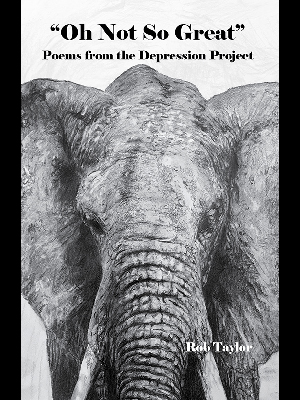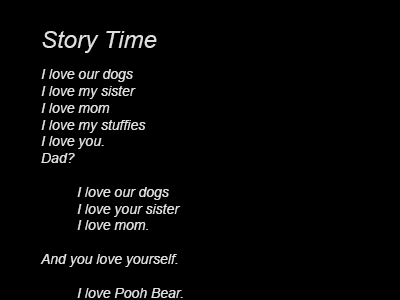
Evidence-based poetry gets to the heart of patient experience.
Doctors at Vancouver Coastal Health have teamed up with patients and a local poet to improve mental health care using the power of poetry.
The groundbreaking initiative, called the Depression Project, resulted in a book of poems titled “Oh Not So Great”. The team of researchers behind the project, including Dr. Josephine Lee, a general practitioner from Richmond General Hospital, will use the poetry collection to aid in enhancing empathy towards patients with depression.
“We choose a career in medicine because we like people and we want to take care of them. But research shows that as people progress through medical training and residency, there is a reduction in their level of empathy. With the day-to-day workload, we medical professionals can get bogged down, and lose a bit of our sense of humanity.”

For their research, Lee, along with project lead Dr. Patricia Gabriel and poet Rob Taylor, met with a group of patients in a series of focus groups. Taylor later crafted poems using key words and common phrases from conversations with patients and from the personal stories they shared. The focus groups and the book Taylor created were structured according to nine medical diagnostic criteria for depression, including sadness, guilt, sleep and appetite loss.

Why is poetry is an effective tool to enhance empathy among medical professionals?
Taylor says poetry has a unique ability to connect people on an emotional level. “Poetry is the art that best mirrors human thought. In that sense, it has the greatest capacity—if it works—to resonate with another person as authentic.”

On a practical level, Lee says the short format of the poems is ideal for busy practitioners who often don’t have time to fully explore each patient’s depression during an appointment. The added challenge is that patients, due to their depressed state, are not always able to articulate their lived experiences. As a result, patients frequently report that they feel misunderstood.
“There are a lot of memoirs and biographies about depression, but for doctors who may not have time to read full-length stories, poetry is the perfect condensed format for sharing those lived experiences. The “Oh Not So Great” collection of poems really gets to the heart of what our patients go through.”
For Lee, one of the first poems in the collection—"Story Time"—stands out as a visceral depiction of the patient experience.

As part of the project, the poems Taylor wrote were reviewed by a second group of patients with depression. Similarly, this group reported that the poems accurately portrayed their experience. Taylor, who has himself lived with depression, was relieved at the response.
“It was a huge responsibility to get this right, as I was reflecting very intimate and painful things people so generously shared with me.”
For Taylor, a satisfying outcome is as simple as one person reading a poem and feeling they now have a better understanding of what it is like to have depression. He says the first barrier is getting people past the perception that poetry is too obscure or intellectual.
“If we can get people to read that first poem, then they realize: ‘Hey, it is not going to bite you or leave you feeling stupid.’”
Lee says the next step for the research team is to conduct an assessment of the poetry with medical students and residents. “We will test whether certain poems are more effective than others, or if we should add the whole book to the clinical training curriculum in some way.”
For the general public, “Oh Not So Great” will be shared through local counselling and peer support groups. It is also available through select bookstores or through BC publisher Leaf Press.


